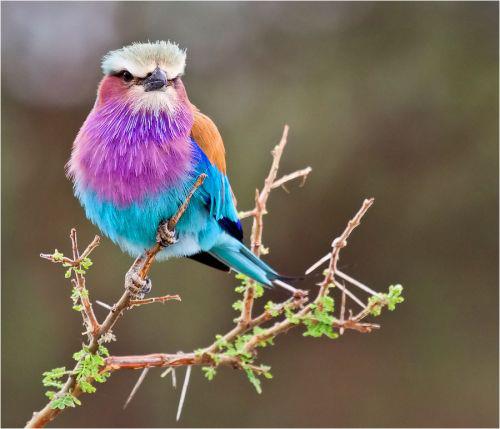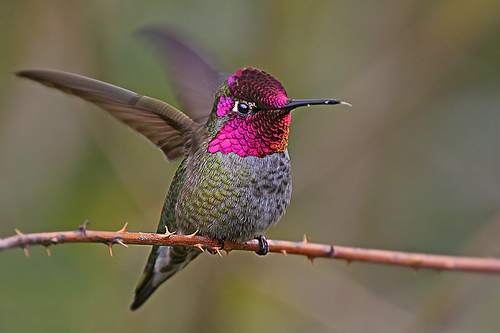Beauty
Beauty
Beauty
Beauty
Beauty

PERSONAL ADORNMENT
Into the question of the personal beauty of birds, insects, etc., we have not space to enter. One fact is rather striking-namely, that these ornaments seem as if they were meant for display. They are either found on conspicuous pods, or on parts that can easily be rendered conspicuous at the will of the animal. We never find the colors which adorn the crests, the eyes, the necks, and the tails of birds hid away, for instance, on the under part of the wing, where they cannot be readily noticed. Indeed, as Mr. Poulton has pointed out, the wings of these species of hummingbirds and insects, which vibrate so rapidly that they are invisible, lack ornament, whereas the slower moving wings of many insects and birds retain it.
On the other hand, almost all night birds are either white or very somber. Brilliant birds have the habit of congregating and waltzing, dancing, or displaying their charms. Plain birds flit into the bush, or, if they charm each other, they betake themselves to song.
Our most beautiful domesticated bird, the peacock, is so vain that its shadow on a glass door or a polished stone, or the presence of a dog in the court, is sufficient to induce it to show off.
Were it not that the magpie is so much persecuted, its taste for collecting bright objects would be more marked, as also its remarkable gatherings known as "magpie marriages." Indeed, as if to make the analogy between human and animal dandies more complete, birds always have on their finest plumes at the courting season.
Physiologists inform us that the eyes of birds are constructed so as to enable them readily to discern every shade of color. We may now consider that it was somewhat rash in the poet to tell us that flowers were ever born to blush unseen, or thoroughly waste their fragrance, since it is well known that color and fragrance are as advertisements to insects that sip the nectar or make use of the pollen of the flowers, and, by their visits, assist in cross-fertilization.
It is more pleasant to believe that birds enjoy their own soup, are each delighted with the other's beauty, and take a pride in personal appearance, than to regard them as dull and apathetic to those amenities interwoven with the sweetness and grace of life.
"Gavest thou the goodly wings unto the peacocks? or wings and feathers unto the ostrich? . . Doth the hawk fly by thy wisdom, and stretch her wings toward the south? Doth the eagle mount up at thy command, and make her nest on high? She dwelleth and abideth on the rock, upon the crag of the rock, and the strong place."
"Behold the fowls of the air: for they sow not, neither do they reap, nor gather into barns; yet your heavenly Father feedeth them."
June 13, 1901 EJW, PTUK 381


